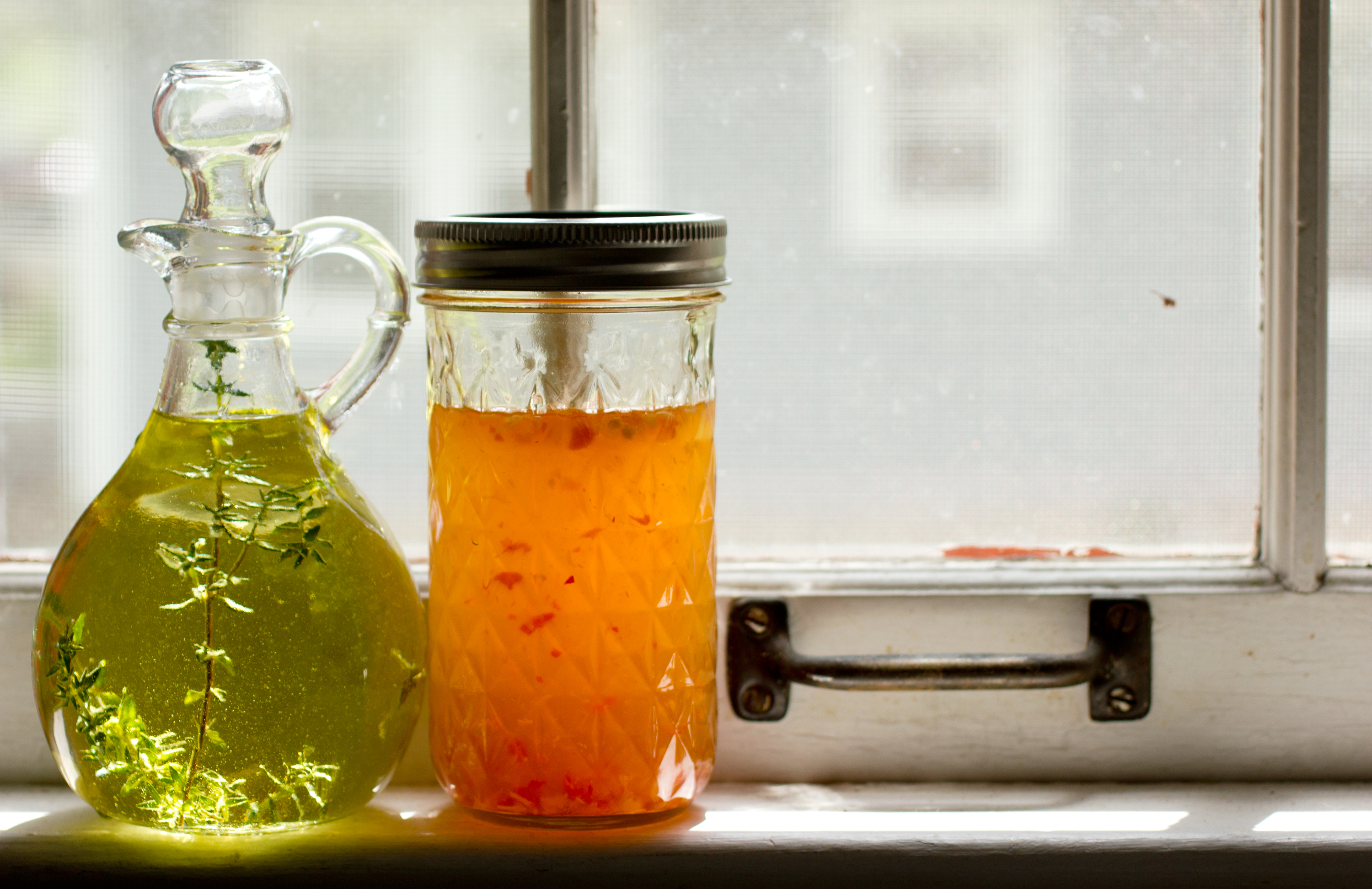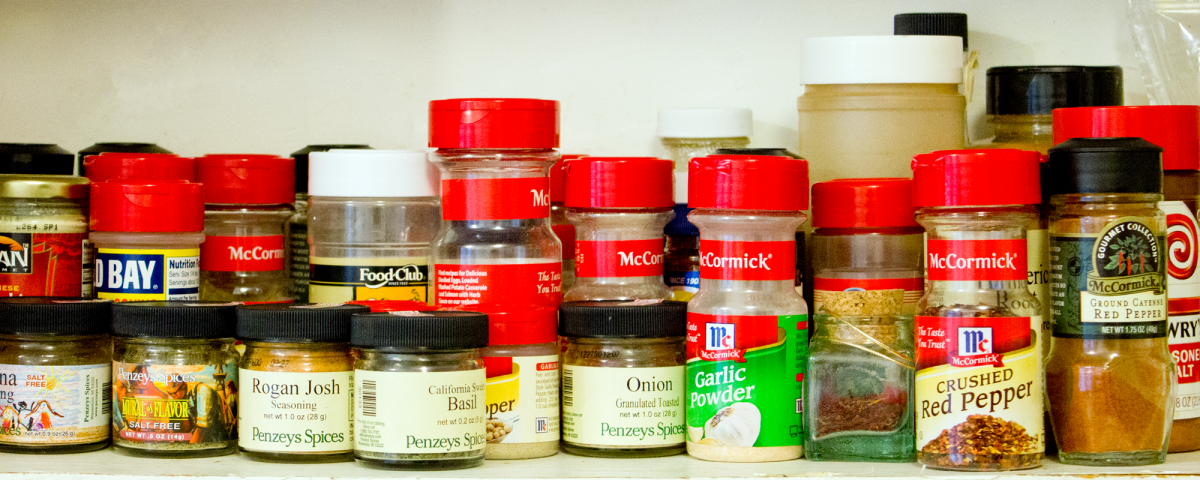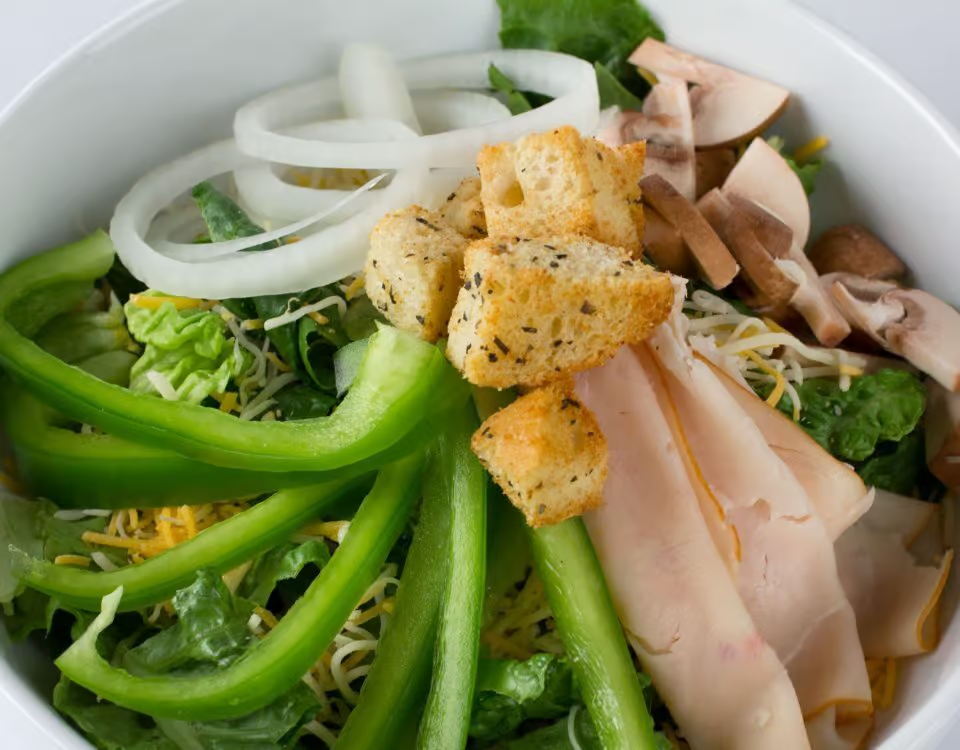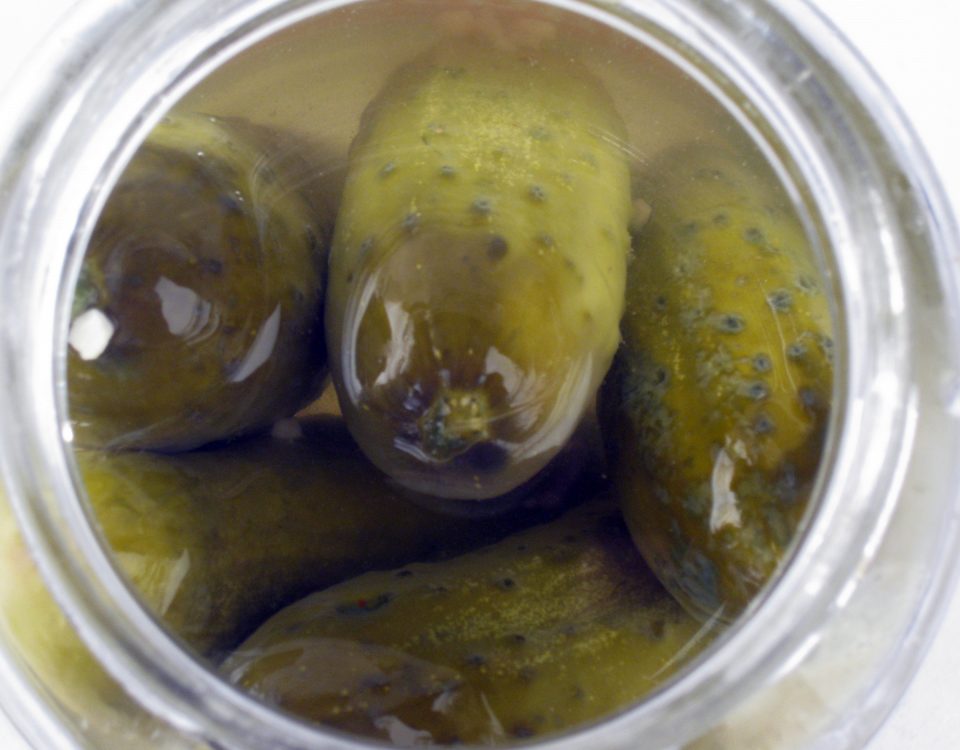
Cool Gourmand Apps
May 16, 2014
Fun with Vinaigrettes
July 27, 2014Do I really need all of these spices and herbs to cook with?
Not really. But if you're inexperienced and serious about cooking for yourself, you'll need some basics to get started. Wait and purchase spices when you're making a recipe that calls for those seasonings. Once you have that particular spice, it will then usually be quite some time before you have to resupply.
There are a few “must haves” that are always found in my kitchen. I recommend you also make these part of your core stock:
- Basil
- Chili Powder
- Cayenne Pepper
- Cinnamon
- Cumin
- Dill Weed
- Garlic Powder
- Onion Powder
- Parsley
- Whole Peppercorns
- Rosemary Leaves
- Salt
- Thyme Leaves
Lots of European and American recipes use these spices, so keeping them on hand will save you a trip to the store. There are also other spices that are blends of a few spices you may already have. For example, you can make your own Chinese Five Spice and save yourself four bucks by combining ground cinnamon, crushed aniseed, crushed fennel seed, ground black pepper, and ground cloves. You can even make your own seasoning blends like taco seasoning this way. Doing this also affords you the health benefit of controlling how much sodium and other food additives you put into it. If you'd like to make your own spice blends, I've got some good recipes in the spices section.
I often use spice blends in lieu of multiple spices in recipes. It saves time and uses an existing blend instead of adding and measuring all the spices in a particular recipe. For example, if a recipe calls for five different herbs (like 1 teaspoon rosemary, 1 teaspoon parsley, 1 teaspoon marjoram, 1 teaspoon oregano, and 1/2 teaspoon basil). It saves loads of time to just add up all the amounts and use 4 1/2 teaspoons of an Italian herb blend, even if it was missing or adding a few herbs not included in the recipe. I do it all the time and my food comes out great.
You may have heard is that spices have a shelf life. This is true but spices do not normally spoil; they do, however, lose strength and color with age. You can use your spices as long as you can still smell them when you open the jar. If your spices or herbs don’t produce a discernible scent to them, you can just add a little more in the recipe to make up for their diminished potency. It's important to store your spices in a cool, dark, dry place, inside an airtight container. A cupboard anywhere other than above the stove is fine.
Dried herbs are fine for many recipes, but fresh is always best when you're making things that are not cooked, like a salad, or if you just want to taste more flavor of that particular plant. It may end up making the meal a little more expensive, but it’s worth it. For instance, you can always tell the difference between fresh chives and the dried variety on a potato.
Quick Recap:
- Stock your pantry with spices you will frequently use.
- Use spice blends whenever possible to conserve shelf space and expedite prep time.
- Buy the smaller containers of herbs and spices so you'll use them before they lose their flavor.
- Store spices in a cool and dry place to preserve their flavor longer. If you have room, the fridge is ideal.




